Military Health Summit
The Military Health System cares for over 9.6 million beneficiaries, saving lives on the frontlines of battle, ensuring the health of warfighter families, and fighting infectious disease around the world. As the MHS needs to remain agile and advanced in its delivery of care, this event will highlight how defense health officials are thinking about advanced technology, data applications and leadership to stay on top of the evolving landscape of both medicine and the battlefield.

Speakers / Panelists
-
 Amy Kluber Editorial Director GovernmentCIO Media & Research
Amy Kluber Editorial Director GovernmentCIO Media & Research
The Joint Trauma System looks to reduce warfighter morbidity and mortality and increase survivability of trauma patients across the military. Part of the JTS’s work is in maintaining the DOD Trauma Registry, a data collection tool that helps drive the organization’s mission. This fireside chat highlights how the JTS is using data to improve warfighter readiness and combat COVID-19 and other medical challenges.
Speakers / Panelists
-
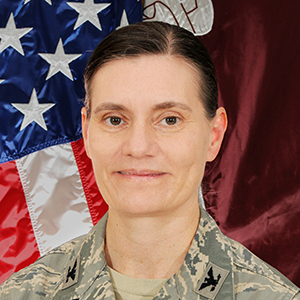 Col. Stacy A. Shackelford Chief, Joint Trauma System DOD
Col. Stacy A. Shackelford Chief, Joint Trauma System DOD -
 Mary Ann Spott, M.D. Deputy Chief, Joint Trauma System DOD
Mary Ann Spott, M.D. Deputy Chief, Joint Trauma System DOD -
 Moderator: Melissa Harris Staff Writer/Researcher GovernmentCIO Media & Research
Moderator: Melissa Harris Staff Writer/Researcher GovernmentCIO Media & Research
Emerging technologies and data-driven decision-making have become core components of health care delivery. This panel will discuss how IT and medical service delivery are becoming increasingly integrated and what this means for warfighter readiness and clinical care advancements now and for veterans in the future.
Speakers / Panelists
-
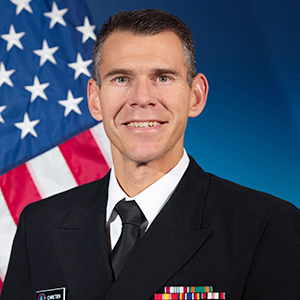 Cmdr. Jean-Paul Chretien Program Manager, Biological Technology Office DARPA
Cmdr. Jean-Paul Chretien Program Manager, Biological Technology Office DARPA -
 Drew Koerner Healthcare CTO ServiceNow
Drew Koerner Healthcare CTO ServiceNow -
 Lt. Col. Luigi Rao, M.D. Army MHS GENESIS Liaison Officer Army Medical Command
Lt. Col. Luigi Rao, M.D. Army MHS GENESIS Liaison Officer Army Medical Command -
 Moderator: Kate Macri Staff Writer/Researcher GovernmentCIO Media & Research
Moderator: Kate Macri Staff Writer/Researcher GovernmentCIO Media & Research
Connected health solutions, wearables, and telehealth were already on the rise in previous years, but COVID-19 brought new demand for remote health capabilities, care, and monitoring for patients and providers. Learn from leaders in the defense health space how they have been and continue to bring new mobile and connected health capabilities to the military health system.
Speakers / Panelists
-
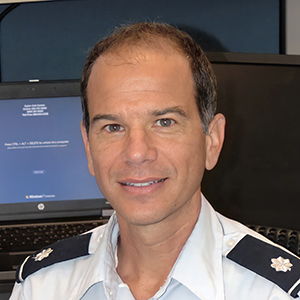 Lt. Col. Antonio Eppolito, M.D. Chief of Telehealth U.S. Air Force
Lt. Col. Antonio Eppolito, M.D. Chief of Telehealth U.S. Air Force -
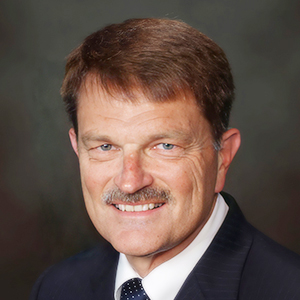 Dr. Mitch Heroman Chief Medical Officer OptumServe
Dr. Mitch Heroman Chief Medical Officer OptumServe -
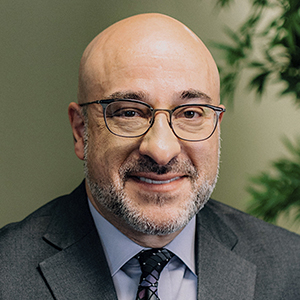 Dr. Simon Pincus Chief, Connected Health Branch DHA
Dr. Simon Pincus Chief, Connected Health Branch DHA -
 Moderator: Amy Kluber Editorial Director GovernmentCIO Media & Research
Moderator: Amy Kluber Editorial Director GovernmentCIO Media & Research
Speakers / Panelists
-
 Amy Kluber Editorial Director GovernmentCIO Media & Research
Amy Kluber Editorial Director GovernmentCIO Media & Research
-
 Cmdr. Jean-Paul Chretien Program Manager, Biological Technologies Office, DARPA
Cmdr. Jean-Paul Chretien Program Manager, Biological Technologies Office, DARPA -
 Lt. Col. Antonio Eppolito, M.D. Chief of Telehealth, U.S. Air Force
Lt. Col. Antonio Eppolito, M.D. Chief of Telehealth, U.S. Air Force -
 Dr. Mitch Heroman Chief Medical Officer, OptumServe
Dr. Mitch Heroman Chief Medical Officer, OptumServe -
 Drew Koerner Healthcare CTO, ServiceNow
Drew Koerner Healthcare CTO, ServiceNow -
 Dr. Simon Pincus Chief, Connected Health Branch, DHA
Dr. Simon Pincus Chief, Connected Health Branch, DHA -
 Col. Stacy A. Shackelford Chief, Joint Trauma System, DOD
Col. Stacy A. Shackelford Chief, Joint Trauma System, DOD -
 Mary Ann Spott, M.D. Deputy Chief, Joint Trauma System, DOD
Mary Ann Spott, M.D. Deputy Chief, Joint Trauma System, DOD -
 Melissa Harris Senior Researcher, GovCIO Media & Research
Melissa Harris Senior Researcher, GovCIO Media & Research -
 Amy Kluber Editorial Director, GovernmentCIO Media & Research
Amy Kluber Editorial Director, GovernmentCIO Media & Research -
 Kate Macri Staff Writer/Researcher, GovernmentCIO Media & Research
Kate Macri Staff Writer/Researcher, GovernmentCIO Media & Research


